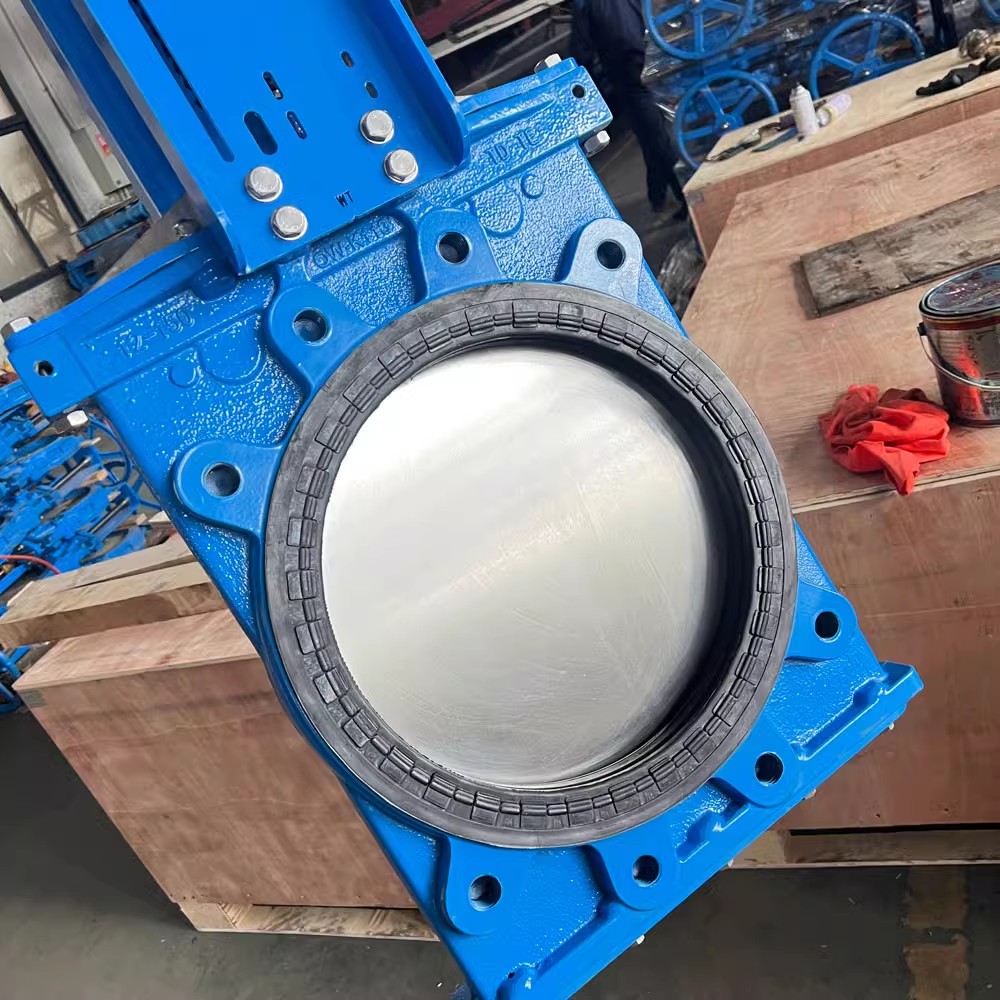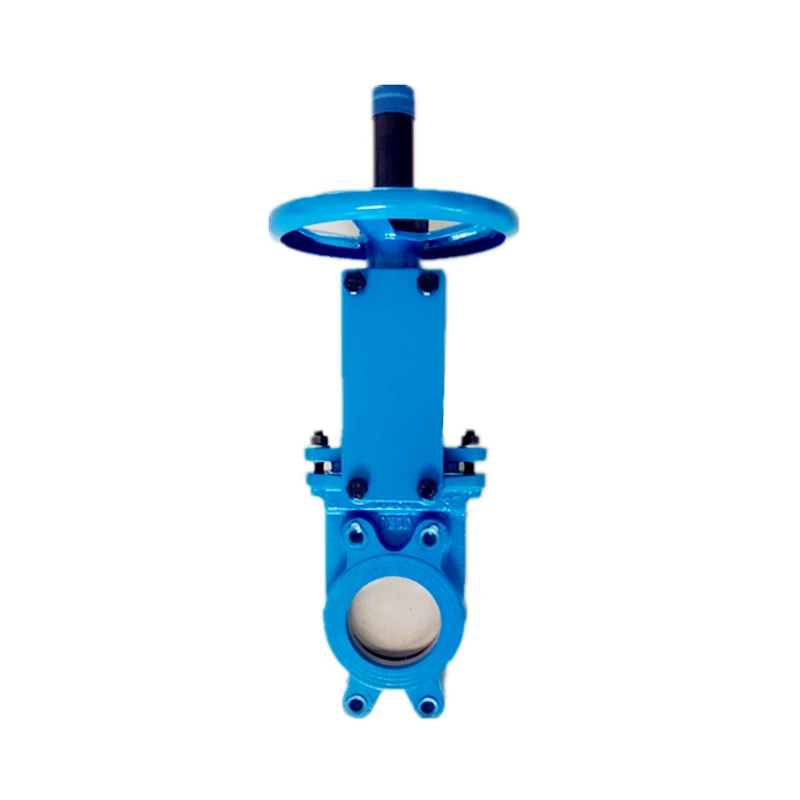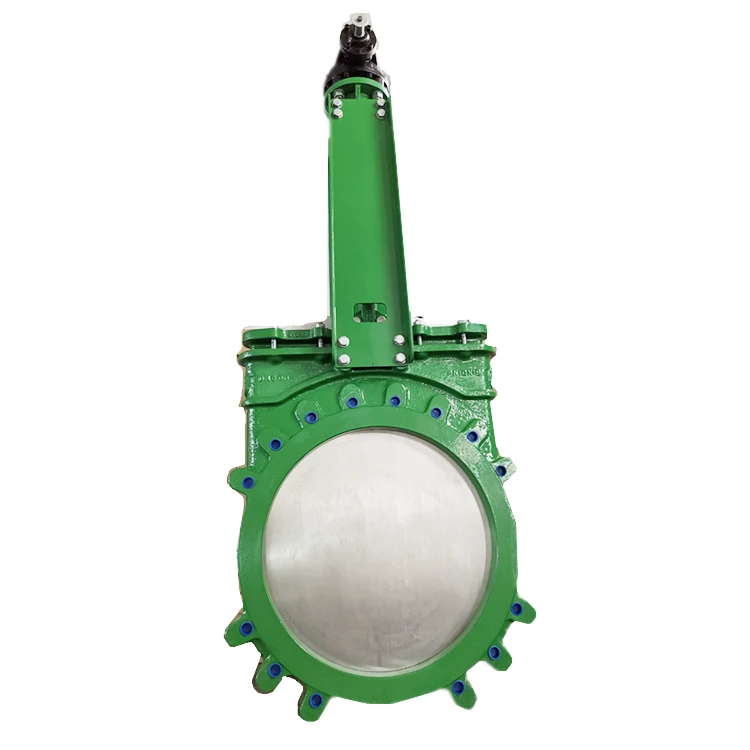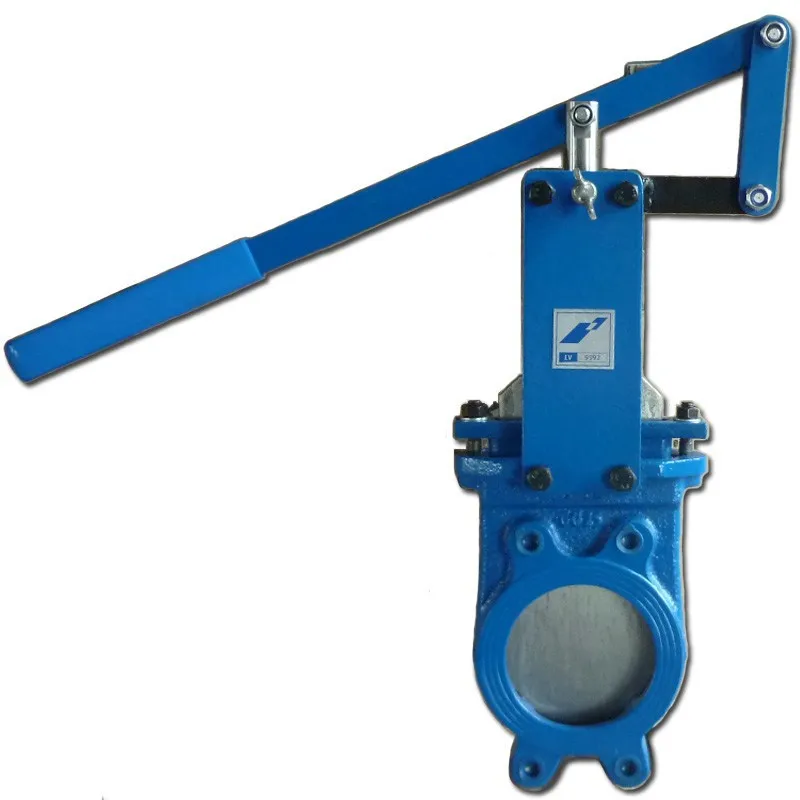Innovative Applications of Pneumatic and Polyurethane Knife Gate Valves
Key Takeaways
Pneumatic-actuated knife gate valves offer an efficient solution for isolating and controlling flow in various industrial applications. Their design allows for precise control and quick operation, making them ideal for use in environments where reliability is critical. The integration of polyurethane knife gate valves enhances performance by providing exceptional resistance to abrasion, thus extending the lifespan of the valve in challenging processes. These valves excel in situations requiring resilience against aggressive materials, thanks to their superior material properties.
PTFE lined knife gate valves cater to industries handling corrosive substances. The PTFE lining ensures minimal chemical interaction, thus safeguarding valve integrity over time. This feature is particularly beneficial for applications in chemical processing, where material compatibility is crucial.
On the other hand, PVC knife gate valve designs have gained traction due to their lightweight nature and ease of installation. They serve well in water treatment facilities and other non-corrosive environments. The versatility of these designs accommodates a wide range of flow control needs while maintaining cost-effectiveness.
The collective versatility of these valve types illustrates their importance across various sectors, promoting operational efficiency and safety standards effectively.
Innovative Applications of Pneumatic-Actuated Knife Gate Valves
Pneumatic-actuated knife gate valves offer a myriad of innovative applications across various industries. Their design enables quick, reliable operation, making them essential in processes requiring efficient isolation or flow control. In wastewater treatment facilities, these valves facilitate the handling of slurries and solids, preventing clogs while maintaining optimal flow rates. In the chemical processing sector, they effectively manage corrosive and abrasive media, ensuring that materials are contained securely without leakage. Furthermore, in the food and beverage industries, these valves uphold stringent hygiene standards while delivering precise control over fluid dynamics.
The adoption of pneumatic-actuated knife gate valves is increasingly favored due to their ability to minimize downtime during maintenance. Unlike traditional valves that may require extensive disassembly, these valves can be serviced quickly and efficiently. Additionally, their integration with automation systems provides enhanced monitoring capabilities, facilitating real-time adjustments that improve process efficiency.
The versatility of these valves is complemented by the opportunity for customization with different materials such as polyurethane or PTFE linings, which enhance performance under specific conditions. This adaptability allows companies to tailor solutions to meet the needs of diverse applications while extending the lifespan of the valve components.
Application | Industry | Benefits |
|---|---|---|
Wastewater Management | Environmental Engineering | Efficient handling of solids and slurries |
Chemical Processing | Chemical Manufacturing | Secure containment of corrosive media |
Food & Beverage | Food Production | Adherence to hygiene standards |
Such features underline the critical role that pneumatic-actuated knife gate valves play in enhancing operational efficiency and ensuring safety across various sectors. Their innovative applications are revolutionizing processes and setting new industry standards for reliability and performance.
Versatility of Polyurethane Knife Gate Valves in Industrial Processes
Polyurethane knife gate valves are increasingly recognized for their unique properties and adaptability in various industrial environments. These valves are engineered to function efficiently in demanding conditions, showcasing notable advantages such as lightweight design and superior resistance to wear. The use of polyurethane enhances seal integrity, substantially minimizing leakage and ensuring reliable performance during operation. Industries handling abrasive or corrosive materials particularly benefit from utilizing polyurethane knife gate valves, as they withstand degradation better than conventional materials.
In terms of installation and maintenance, these valves simplify processes significantly. Their design allows for easy integration into existing piping systems, thus reducing downtime during operational transitions or upgrades. Furthermore, the resilience of polyurethane against external factors—such as varying temperatures and pressure conditions—ensures performance stability across diverse applications. This characteristic translates to lower maintenance costs over the valve's lifecycle.
"Choosing the right valve material can significantly influence operational efficiency and longevity."
Applications range from wastewater treatment facilities to chemical processing plants, highlighting the versatility of these valves in managing fluctuating pressures while ensuring operational safety. The expanding capabilities of polyurethane knife gate valves continue to make them a preferred choice for companies seeking efficient solutions tailored to their specific processing needs. As industries evolve, these valves stand at the forefront, exemplifying how innovation can enhance productivity and reliability in complex industrial frameworks.

Performance of PTFE Lined Knife Gate Valves in Challenging Environments
PTFE lined knife gate valves are critical components in industries that handle corrosive fluids and abrasive materials. Their design incorporates a layer of PTFE, a robust fluoropolymer known for its excellent chemical resistance and low friction properties. This lining provides a barrier against aggressive substances, significantly extending the operational life of the valve. In environments where chemical compatibility is paramount, these PTFE lined valves excel by preventing contamination and degradation of valve components.
The performance of PTFE lined knife gate valves is particularly noteworthy in mining, chemical processing, and wastewater treatment applications. In these sectors, the ability to maintain tight sealing while operating under high pressure is essential. The knife gate design facilitates efficient flow control, ensuring minimal turbulence and reduced wear on the valve seat. Additionally, the self-cleaning properties of PTFE help prevent clogging, resulting in smooth operation over time.
The versatility of PTFE lined knife gate valves allows them to handle varying temperatures and pressures without compromising integrity. Their application in high-temperature environments demonstrates resilience against thermal expansion while maintaining functional performance under stress. Through rigorous testing and real-world applications, these valves have proven their efficacy as reliable solutions for managing flow in demanding conditions.
In sum, the integration of PTFE lining enhances both durability and functionality in challenging environments, making these knife gate valves an indispensable choice for industries where performance cannot be compromised.

Comparative Analysis of PVC Knife Gate Valve Designs and Their Applications
PVC knife gate valves are widely recognized for their cost-effectiveness and light weight, making them an excellent choice in various industrial environments. Their robust construction allows them to handle slurry, water, and other chemical fluids with relative ease. The design of these valves often includes a simple, unobtrusive blade that allows for smooth operation, ensuring minimal pressure loss across the valve. Valterra, as a notable manufacturer, offers models that emphasize ease of installation and maintenance, appealing to industries seeking efficiency and reliability. When considering performance, the unique properties of PVC contribute to high resistance against corrosion and environmental factors. This makes PVC knife gate valves particularly suited for applications in wastewater treatment facilities and chemical processing plants where they encounter harsh conditions. Additionally, their configuration facilitates effective sealing during operation, essential in applications requiring complete closure to maintain pressure integrity. Comparatively, while these valves excel in handling low-pressure conditions, they may not perform as well under higher pressure systems where alternatives such as pneumatic-actuated or polyurethane knife gate valves demonstrate greater efficiency. Understanding these distinctions is vital when selecting the appropriate valve for specific operational requirements in industrial processes.
Conclusion
The advancements in pneumatic-actuated knife gate valves and their variants, such as polyurethane knife gate valves and PTFE lined knife gate valves, reflect a significant progression in valve technology tailored for demanding industrial environments. The adaptability of these solutions enables them to perform efficiently under varying pressure and temperature conditions, addressing the needs of diverse applications. Notably, PVC knife gate valves present a cost-effective option without compromising functionality, particularly in less severe operational settings. The utilization of materials like polyurethane enhances the lifespan and performance reliability of these valves, while PTFE linings provide exceptional resistance to chemicals and abrasions. These attributes make such valves invaluable in industries ranging from wastewater management to chemical processing. As industries continue to innovate, the adoption of these advanced valve systems will likely expand, driving further improvements in operational efficiency and safety across numerous applications.
FAQs
What are the main advantages of using pneumatic-actuated knife gate valves?
Pneumatic-actuated knife gate valves offer rapid operation and reliability. Their ability to efficiently handle a variety of materials makes them ideal for applications in diverse industries.
How do polyurethane knife gate valves perform in corrosive environments?
Polyurethane materials exhibit excellent resistance to chemicals and abrasion, making polyurethane knife gate valves suitable for harsh environments. Their durability enhances the longevity of valve performance.
What is the purpose of PTFE lining in knife gate valves?
PTFE lining provides a non-stick surface that is resistant to corrosion and extreme temperatures. This makes PTFE lined knife gate valves ideal for applications involving aggressive fluids.
In what applications are PVC knife gate valves typically used?
PVC knife gate valves are commonly used in water treatment, irrigation, and various industrial processes due to their lightweight nature and resistance to corrosion. They are effective for lower-pressure systems.
Can pneumatic-actuated knife gate valves be automated?
Yes, pneumatic-actuated versions can be easily integrated into automated systems. This improves operational efficiency and allows for remote control of valve functions in industrial settings.
Are there limitations to using polyurethane knife gate valves?
While polyurethane provides robust performance, extreme temperatures can limit its effectiveness. It's essential to assess environmental conditions before selecting this type of valve.
How do the maintenance requirements differ between PVC and PTFE lined knife gate valves?
PVC valves typically require less maintenance due to their simplified design, while PTFE lined variants may need periodic inspections to ensure that the lining remains intact and functional under demanding conditions.




